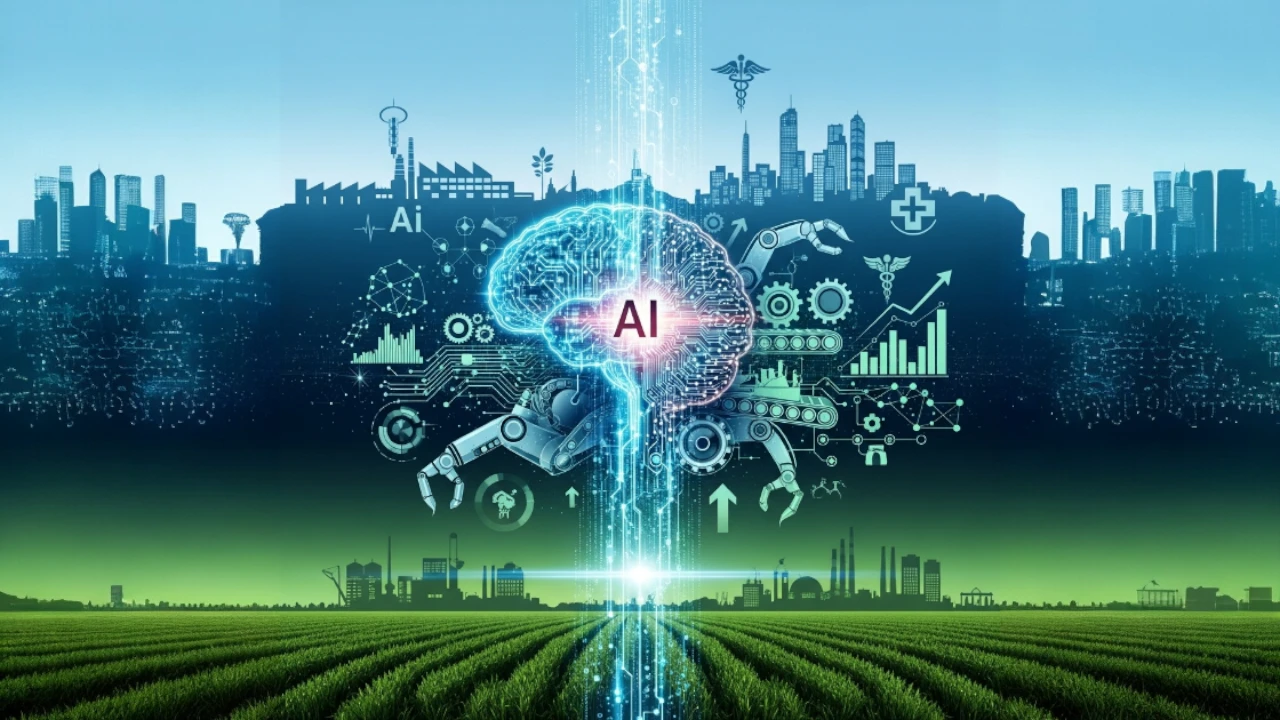The entrepreneurial journey is filled with challenges, from managing daily operations to scaling for growth. But what if you could automate repetitive tasks, make data-driven decisions, and focus on what truly matters—innovation and strategy? Enter artificial intelligence (AI). AI is no longer a futuristic concept; it’s a powerful tool that’s reshaping how entrepreneurs run and grow their businesses. In this article, we’ll explore how AI is enabling entrepreneurs to automate processes, streamline operations, and scale effortlessly. Whether you’re a startup founder or a seasoned business owner, these insights will show you how to harness AI to unlock new levels of efficiency and success.
Table of Contents
ToggleAutomating Repetitive Tasks
Why Automation is a Game-Changer
One of the most significant ways AI empowers entrepreneurs is by automating repetitive, time-consuming tasks. From data entry to customer support, AI-powered tools can handle these responsibilities, freeing up your time for higher-value activities.
Examples of AI-Powered Automation
- Chatbots: Handle customer inquiries 24/7 without human intervention.
- Email Marketing: Use AI to personalize campaigns and optimize send times.
- Accounting: Automate invoicing, expense tracking, and financial reporting.
Enhancing Customer Experiences
How AI Transforms Customer Interactions
AI enables businesses to deliver personalized, seamless customer experiences at scale. By analyzing customer data, AI can predict needs, recommend products, and resolve issues faster than ever before.
AI Tools for Customer Experience
- Recommendation Engines: Suggest products based on browsing and purchase history.
- Sentiment Analysis: Monitor customer feedback to improve service quality.
- Virtual Assistants: Provide instant support through voice or text interfaces.
Streamlining Operations with Predictive Analytics
The Power of Data-Driven Decisions
AI’s ability to analyze vast amounts of data in real-time allows entrepreneurs to make smarter, faster decisions. Predictive analytics can forecast trends, optimize inventory, and even prevent potential issues before they arise.
Applications of Predictive Analytics
- Demand Forecasting: Predict sales trends to manage inventory effectively.
- Risk Management: Identify potential risks and take proactive measures.
- Resource Allocation: Optimize staffing and budget allocation based on data insights.
Scaling Marketing Efforts
How AI Supercharges Marketing
Marketing is one of the most dynamic areas where AI is making a significant impact. From content creation to campaign optimization, AI tools help entrepreneurs reach their target audience more effectively.
AI-Driven Marketing Strategies
- Content Generation: Use AI to create blog posts, social media captions, and ad copy.
- Ad Targeting: Leverage AI to identify and target high-conversion audiences.
- Performance Analysis: Monitor campaign metrics and adjust strategies in real-time.
Optimizing Supply Chain Management
The Role of AI in Logistics
For businesses that rely on supply chains, AI offers unparalleled efficiency. It can optimize routes, reduce costs, and ensure timely delivery, even as your business grows.
AI Solutions for Supply Chains
- Route Optimization: Use AI to plan the most efficient delivery routes.
- Inventory Management: Automate stock replenishment based on demand forecasts.
- Supplier Selection: Analyze supplier performance to make informed decisions.
Improving Product Development
How AI Fuels Innovation
AI isn’t just about efficiency—it’s also a catalyst for innovation. By analyzing customer feedback and market trends, AI can help entrepreneurs develop products that truly resonate with their audience.
AI in Product Development
- Market Research: Identify gaps and opportunities in the market.
- Prototype Testing: Simulate product performance to reduce development time.
- Customer Feedback Analysis: Use AI to gather and analyze user input for improvements.
Boosting Employee Productivity
AI as a Workplace Partner
AI isn’t just transforming customer-facing operations—it’s also enhancing internal processes. By automating administrative tasks and providing actionable insights, AI helps employees work smarter, not harder.
AI Tools for Employee Productivity
- Task Management: Automate project tracking and deadline reminders.
- HR Solutions: Streamline recruitment, onboarding, and performance reviews.
- Training Programs: Use AI-powered platforms for personalized employee development.
Ensuring Data Security and Compliance
The Importance of AI in Cybersecurity
As businesses grow, so do their risks of cyber threats. AI plays a critical role in detecting and preventing security breaches, ensuring your data—and your customers’ data—remains safe.
AI-Driven Security Measures
- Threat Detection: Identify and neutralize potential cyber threats in real-time.
- Fraud Prevention: Monitor transactions for suspicious activity.
- Compliance Monitoring: Ensure adherence to industry regulations and standards.
Overcoming Challenges in AI Adoption
Navigating the Roadblocks
While AI offers immense benefits, adopting it isn’t without challenges. From cost concerns to skill gaps, entrepreneurs must address these hurdles to fully leverage AI’s potential.
Tips for Successful AI Integration
- Start small with pilot projects to test AI solutions.
- Invest in training to upskill your team.
- Partner with AI experts or vendors to bridge knowledge gaps.
FAQs
1. Is AI only for large businesses?
No, AI tools are increasingly accessible and affordable for businesses of all sizes, including startups and small enterprises.
2. How much does it cost to implement AI?
Costs vary depending on the tools and scale of implementation. Many AI solutions offer subscription-based pricing, making them budget-friendly.
3. Can AI replace human employees?
AI is designed to augment human capabilities, not replace them. It handles repetitive tasks, allowing employees to focus on creative and strategic work.
4. What industries benefit most from AI?
AI is versatile and benefits industries like retail, healthcare, finance, logistics, and more. Any business can find AI applications tailored to its needs.
5. How do I choose the right AI tools for my business?
Identify your pain points, research AI solutions that address them, and start with a trial or pilot program to assess effectiveness.
Conclusion
AI is no longer a luxury—it’s a necessity for entrepreneurs who want to stay competitive in today’s fast-paced business landscape. By automating tasks, enhancing customer experiences, and providing data-driven insights, AI empowers entrepreneurs to scale effortlessly and focus on what truly matters: innovation and growth. Whether you’re just starting out or looking to take your business to the next level, now is the time to embrace AI and unlock its transformative potential. Start small, experiment, and watch as AI revolutionizes the way you work and grow.
Internal Links:
External Links:
By integrating AI into your business strategy, you’ll not only streamline operations but also position yourself for long-term success in an increasingly digital world. Start your AI journey today—your future self will thank you!























